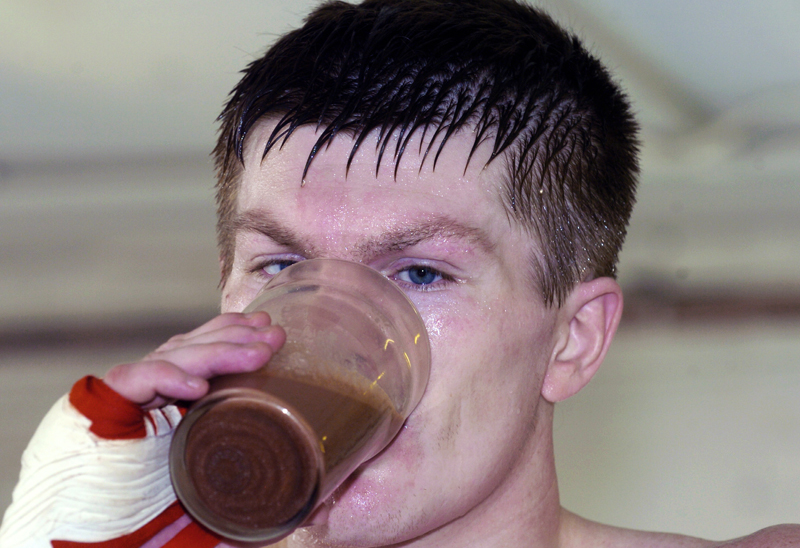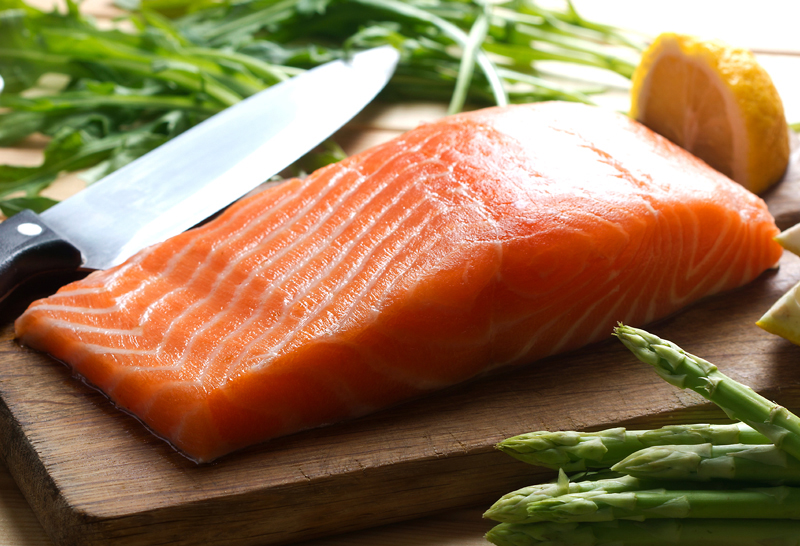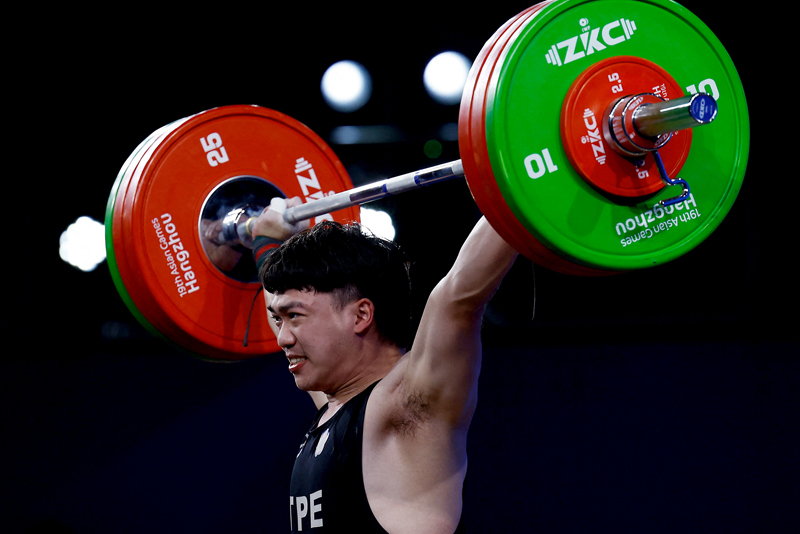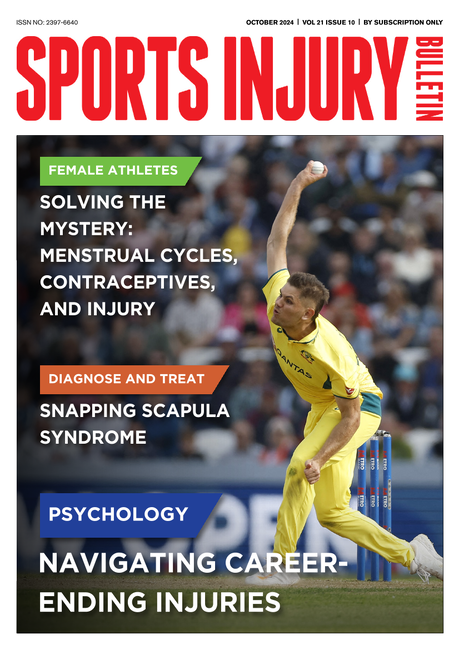You are viewing 1 of your 1 free articles. For unlimited access take a risk-free trial
Nutrition for athletes: protein facts vs. protein myths
What does the best and most recent scientific thinking recommend on protein intake for athletes? Andrew Sheaff looks at what the latest research says and makes a number of practical recommendations
Protein is a critical component of an effective nutrition plan, and getting your protein right can make a big impact on your health and performance. So in this article, we’re going to examine and summarize the evidence-based answers from a new study to 12 different questions that are critical for hard-training athletes. We’re also going to stick with the most important questions so that you can put these ideas into practice as appropriate.
It’s important to understand that the data and recommendations that follow are not my personal opinions, or even the personal opinions of the researchers who authored this newly published paper(1). These recommendations arise from their assessment of the protein nutrition literature after a comprehensive analysis of the available evidence. Of course, we all vary, and it’s quite possible that your individual experiences may be somewhat different from the suggestions. If that’s the case, and you’re happy with the outcomes you’re experiencing, feel free to continue on your current path. However, you feel that your protein nutrition might be improved in any way, what follows is recommended reading!
Q1: Is protein harmful to your kidneys?
No. Protein, even at high intake levels, is not harmful in healthy populations. There is no evidence that high intake levels lead to kidney damage in the short-term or the long-term. Specifically in athletes, high protein intakes have not led to negative changes in kidney activity, and no long-term protein supplement studies have ever demonstrated adverse effects. This is even true in studies where individuals were consuming extremely high levels of protein. High-protein diets have also been shown to positively impact health markers in type 2 diabetics and pre-diabetics, all without any negative impact on kidney function.
Q2: Does consuming ‘excess’ protein increase body fat mass?
There’s an old saying that extra protein just turns to fat. But this does not appear to be the case. There are several studies that show that very high levels of protein do not lead to increases in fat mass in spite of increased calorie consumption as a result of the increased protein intakes. It appears that an excess of fats and carbohydrates is what contributes to weight gain as opposed to protein. During hypocaloric (dieting) conditions, increasing amounts of protein do not lead to increases in fat mass, but instead lead to increased preservation of fat mass.
Q3: Can dietary protein have a negative effect on bone health?
There is a belief that protein intakes can increase the acid load of the diet, which in turn strips calcium from the bones, which is then excreted out via the urine. Regardless of this hypothesis, multiple studies and meta-analyses have concluded that bone health is not compromised by higher protein diets. In fact, protein is a critical component of bone, and increased dietary protein may promote bone health rather than harm it. High protein diets have been associated with higher bone mineral density, fewer hip fractures, and slower bone loss in aging populations.
Q4: Can vegans and vegetarians consume enough protein to support training adaptations?
There is a lot of controversy about protein sources. Animal-based protein does contain a higher percentage of the ‘essential amino acids’ and the amino acid leucine, both potent simulators of muscle protein synthesis. So when compared head-to-head, animal protein sources stimulate greater muscle protein synthesis than plant protein sources when the same amount of protein is consumed.
However, this does not mean that vegan or vegetarian sources can’t get the job done. The researchers suggest individuals can compensate for the inferiority of plant-based sources by consuming 20-40% of calories as plant protein, thus matching the positive benefits of animal-protein sources. Indeed, multiple studies have shown that plant protein can support positive training adaptations, provided sufficient protein is consumed.
Q5: Is cheese or peanut butter a good protein source?
While peanut butter and cheese can provide good amounts of protein, the problem is what comes with that protein. To consume a sufficient amount of protein through either source, you’ll need to consume a large number of calories in the form of fat as well, which can negatively impact body composition. Specific to peanut butter, it is a plant protein, and as we just discussed, even more protein must be consumed to provide the same anabolic impact. This will require consuming even more calories. If you can handle or need the extra calories, these options can work. Otherwise, alternative choices may be more effective.
Q6: Does consuming meat (ie animal protein) cause unfavorable health outcomes?
This is a controversial topic as the evidence is mixed and nuanced. It does appear that processed meat can potentially result in unfavorable health outcomes. By contrast, it appears that white meat and fish can lead to positive health outcomes. What’s less clear is the impact of red meat on health. There is some epidemiological evidence that shows it may have a negative impact on health and some that shows it may not, but it is very difficult to tease apart the impact of lifestyle factors. Further, any potential impact of red meat appears to be very small. If you are looking for definitive answers, unfortunately they are not available at this time.
Q7: Do you need protein if you are not physically active?
While you’re most likely an avid athlete if you’re reading this, there may be periods of your life when sport is on the backburner. Protein is a critical component of numerous cellular process and integral component of all body structures. From a health and longevity standpoint, sufficient protein powerfully promotes better body composition and the preservation of muscle tissue, both of which are critical for a long and healthy life. Even if you’re not training, protein matters. And if you’re experiencing an injury which is hampering your training, consuming sufficient protein is going to help preserve muscle even if you’re not training.
Q8: Do you need to consume protein within one hour following resistance training sessions to optimize muscle building?
More than anything else, the amount of protein consumed across the day appears to be the most important factor associated muscular adaptations. While it was initially thought that post-exercise protein consumed within one hour was critical, this no longer appears to be the case. In fact, the muscles remain sensitive to protein feeding for extended periods of time following training. The impact of any post-training protein intake will be even less significant if protein was consumed in the hours before training. Therefore, if you can’t consume protein within the first hour after exercise, just ensure that your total protein for the day is sufficient, or alternatively, try to consume some protein before your training. Consuming protein immediately after training definitely won’t hurt though, so if you’ve already established the habit, keep it up!
Q9: Do endurance athletes need additional protein?
Protein has traditionally been considered a muscle-building nutrient. As such, it’s been given less attention by endurance athletes, and even ignored by those who are fearful about building excess muscle. This is largely a mistake; protein is a key component of every structure in the body, including muscle tissues, metabolic enzymes, and even the immune system. These structures all potentially have a direct impact on your performance and health. Moreover, this is not just a theory; several studies have demonstrated clearly that muscle damage is reduced, training adaptations are enhanced and the risk of injury or illness is reduced, when additional protein is consumed. If you’re an endurance athlete, and that sounds good to you, don’t be afraid of bumping up your protein intake!
Q10: Are protein supplements necessary to meet the daily requirements of exercise-trained individuals?
Protein supplementation is not necessary. There is no evidence that the protein from supplemental sources (eg whey powder) is superior to the protein found in whole food sources. That said, the only protein that has an impact on your physiology is the protein that gets consumed. If you’re struggling to consume sufficient protein from whole food sources, protein supplements can be a major asset. Whether you simply can’t stomach that much food, or you find yourself constantly on the go, protein supplements can help you meet your protein needs. Just understand that these supplements are not ‘better’ – they are merely more convenient. Don’t assume you need to use them, and don’t assume that there is a problem with using them.
Q11: How much protein do I need per day?
Those who train everyday are recommended to consume protein in amounts ranging from 1.4–2.0 grams of protein per kilo of body weight per day. Power/strength athletes and those who wish to build muscle and maximize their physique should aim for 2.3–3.1 grams of protein per kilo of lean body mass per day. Those seeking to simultaneously improve body composition via an increase in lean body mass coupled with a decrease in fat mass should aim for a protein intake of around 3.4 grams per kilo per day.
Q12: Is there a limit to how much protein you can consume in a single meal?
The evidence indicates that 20-30 grams of protein appears to be a sufficient quantity of protein to adequately simulate muscle protein synthesis. However, if there is significant metabolic stress due to low calorie diets or large amounts of training, more protein, perhaps 35 grams, is likely to be optimal for stimulating muscle protein synthesis. There used to be a belief that excess protein was ‘wasted’, so it made little sense to consume more than these recommended amounts. However, recent research has shown that protein consumption of up to 100 grams isn’t wasted. While more evidence is necessary, you likely don’t have to worry about the wastefulness of consuming too much.
In summary
Protein is a key nutrient that’s critical for health and an effective training response. Hopefully, you’ve either learned something valuable to improve your nutrition, you’ve had one of your protein practices validated, you’ve had one of your concerns about protein addressed, or maybe all three! If this article has convinced you that you have an opportunity to improve your protein nutrition, start with one change that you’re confident will have a positive impact, and make it happen.
Reference
1. J Int Soc Sports Nutr. 2024 Dec;21(1):2341903. doi: 10.1080/15502783.2024.2341903. Epub 2024 Apr 16
Related Files
Newsletter Sign Up
Testimonials
Dr. Alexandra Fandetti-Robin, Back & Body Chiropractic
Elspeth Cowell MSCh DpodM SRCh HCPC reg
William Hunter, Nuffield Health
Newsletter Sign Up
Coaches Testimonials
Dr. Alexandra Fandetti-Robin, Back & Body Chiropractic
Elspeth Cowell MSCh DpodM SRCh HCPC reg
William Hunter, Nuffield Health
Keep up with latest sports science research and apply it to maximize performance
Today you have the chance to join a group of athletes, and sports coaches/trainers who all have something special in common...
They use the latest research to improve performance for themselves and their clients - both athletes and sports teams - with help from global specialists in the fields of sports science, sports medicine and sports psychology.
They do this by reading Sports Performance Bulletin, an easy-to-digest but serious-minded journal dedicated to high performance sports. SPB offers a wealth of information and insight into the latest research, in an easily-accessible and understood format, along with a wealth of practical recommendations.
*includes 3 coaching manuals
Get Inspired
All the latest techniques and approaches
Sports Performance Bulletin helps dedicated endurance athletes improve their performance. Sense-checking the latest sports science research, and sourcing evidence and case studies to support findings, Sports Performance Bulletin turns proven insights into easily digestible practical advice. Supporting athletes, coaches and professionals who wish to ensure their guidance and programmes are kept right up to date and based on credible science.











